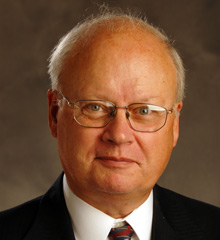Outline of 1 Timothy
Revised by Mary Hinkle Shore, 10/23
1. Opening (1 TimothyThe companion on Paul’s later journeys for whom two pastoral epistles are named. More 1:1-2)
PaulThe Apostle Paul, originally known as Saul of Tarsus, was the author of several New Testament letters and the founder of many Christian communities. More sends greetings to Timothy, his “loyal child in the faith.”
Timothy is to oppose individuals who teach doctrine different from that delivered by Paul and to “fight the good fight” in imitating Paul.
3. Instructions on Prayer and Worship (1 Timothy 2:1-15)
While gathered for corporate worship, men are to pray for the civil order. Women are to be silent, comport themselves with modesty, and bear and nurture children.
4. Expectations of Bishops and Deacons (1 Timothy 3:1-13)
To qualify for the office of bishop or “overseer”, a man must be virtuous in general and have the skills to manage a householdA household is a living unit comprised of all the persons who live in one house. A household would embrace all the members of a family, including servants and slaves. In the book of Acts, stories are told of various persons and their households, like… More. To be a deacon“Deacon” originally meant “one who serves” or “ministers.” In the early church deacons served in leadership roles; later they became a specific rank of clergy. Today some churches ordain deacons while others commission them to serve in specific ways such as worship, pastoral care, and… More the word is also translated “minister” or “servant”), one must also be virtuous and tested.
5. The Church as Bulwark of Truth (1 Timothy 3:14-16)
The letter gives instruction in matters of behavior, for sound teaching and good behavior must be held together in the church, “the pillar and bulwark of the truth.”
6. Duties of Ministry (1 Timothy 4:1-5:2)
Timothy must oppose false teachers who reject marriage and forbid the eating of certain foods. He is to insist on the goodness of what God has created, serve as an example in speech and conduct, and carry out his ministry with boldness, including the public reading of Scripture and teaching.
7. Attending to Order and Duties (1 Timothy 5:3-6:2a)
Timothy is to take care of matters of order in the community, including making a roster and arranging financial support of women who qualify as true “widows,” the honoring and financial support of eldersElders are leaders who exercise wisdom or leadership by virtue of their age and experience. In the New Testament elders, along with the chief priests and scribes, constituted the primary opposition to Jesus when he taught in Jerusalem. More who govern and teach, and the honoring of masters (especially Christian masters) by Christians who are enslaved.
8. True and False Teaching (1 Timothy 6:2b-21a)
Once again a distinction is made between true and false teaching and teachers. The latter seek controversy and are addicted to vices of various kinds (including greed), but Timothy is to “fight the good fight of the faith,” keep the faith confessed from the beginning, and urge good conduct within the community, including generosity.
9. Benediction (1 Timothy 6:21b)
The letter concludes with a brief benediction.
